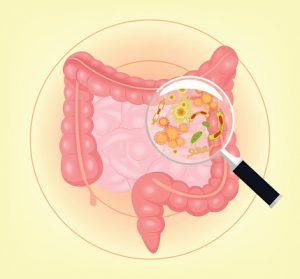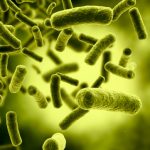 For a healthy gut it all comes down to good gut flow and gut bacteria. With every meal we eat we are feeding roughly 100 trillion bacteria. Research continues to come to light about how our gut flora and bacteria affects other aspects of our health, like mood and weight.
For a healthy gut it all comes down to good gut flow and gut bacteria. With every meal we eat we are feeding roughly 100 trillion bacteria. Research continues to come to light about how our gut flora and bacteria affects other aspects of our health, like mood and weight.
Our gut bacteria begins to go through changes as early as the breast-feeding stage in our lives. Researchers who analyzed the gut bacteria of babies who were breastfed, and those who were not, saw dramatic changes by the time solid food was introduced.
Advertisement
Our gut flora continues to change with each passing year until it reaches the adult stage. Additionally, how we eat can shape our gut bacteria as well. For example, high-protein and fat diets produce different gut bacteria than high-carbohydrate and fiber diets.
Although more and more research continues to come out in regards to gut bacteria, we are still very much in the early stages of knowledge. Scientists are still unaware of what defines a healthy gut – although they do know certain bacteria are better than others. What is known is the more variety of gut bacteria that is present, the more protected we are to health problems. Low gut bacteria diversity has been linked with obesity, heart disease and insulin resistance.
Factors affecting alterations in gut flora balance
 When our gut flora is imbalanced it is referred to as disbacteriosis. There are many reasons why there would be alterations to our gut flora, including:
When our gut flora is imbalanced it is referred to as disbacteriosis. There are many reasons why there would be alterations to our gut flora, including:
Protein deficiency: Protein is required for energy and gut flora, too, requires energy. A protein deficiency limits the body’s ability to produce mucin, which helps keep the lining of the stomach protected.
Excess dietary fiber: Fiber is essential for proper digestion, but too much of a good thing can be bad in the case of fiber. By-products of fiber can destroy bacteria and have you addicted to more fiber to make up for lost healthy bacteria.
Intestinal acidity: Excess acidity can lead to pancreas disorders or obstructions. Acidic digestive juices can spill out into the intestines and thus destroy bacteria.
Diarrhea: Diarrhea is a result of some sort of infection, toxin or poisoning. Diarrhea can strip you of good and bad bacteria.
Antibiotics and antibacterials: Not only do antibiotics and antibacterials destroy bad bacteria, but they can destroy good bacteria as well. It’s advised when taking antibiotics to also take pre, or probiotics to restore the gut flora.
Other notable causes of alterations in gut flora balance include:
- Food coloring
- Silverware
- Heavy metals
- Mercury from dental amalgam
Even though destroying good bacteria is bad, having too much good bacteria is also harmful – the key is balance. Here is a list of symptoms associated with an imbalance in gut flora:
 Constipation
Constipation- Excess gas
- Too little gas
- Chronic diarrhea
- Chronic bad breath
- Hormonal problems
- PMS
- Menstrual cramps
- Prostate trouble
- Breast enlargement in men
- Yeast infections
- Chronic anemia
- Chronic respiratory problems
- Dairy products and food allergies
- Vitamin B deficiencies
- High cholesterol
- Neurological problems
- Severe bruising
- Chronic bladder infections
- Osteoporosis
- Loss of muscle tissue (Sarcopenia)
Foods that boost healthier gut bacteria
Advertisement
 A simple way to improve your gut bacteria is through the foods you eat. Just like how many foods can harm our gut bacteria – such as processed and refined foods and sugar – there are many options that can really give our gut bacteria a boost, including:
A simple way to improve your gut bacteria is through the foods you eat. Just like how many foods can harm our gut bacteria – such as processed and refined foods and sugar – there are many options that can really give our gut bacteria a boost, including:
- Cruciferous vegetables – broccoli for example
- Bananas
- Beans
- Jerusalem artichokes
- Blueberries
- Polenta
- Fermented foods – kimchi, sauerkraut, tempeh
Tips to maintain healthy gut bacteria
Because our gut has much responsibility regarding our overall health, it’s important to take mindful steps toward promoting a healthy gut. If you want to promote optimal gut flora, keep these tips in mind.
- Cut out sugar and processed foods
- Eat more plants and dietary fiber
- Limit antibiotics
- Take a probiotic
- Try fermented foods
- Lower your stress
- Get quality sleep
- Exercise and sweat
- Consume less meat and animal products
These tips can better help you promote more balance in your gut bacteria, which in turn will help you be much healthier.
